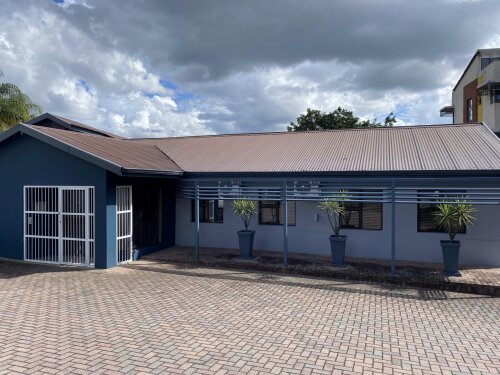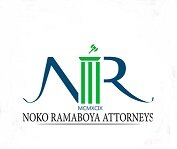Best Natural Resources Lawyers in South Africa
Share your needs with us, get contacted by law firms.
Free. Takes 2 min.
Or refine your search by selecting a city:
List of the best lawyers in South Africa
About Natural Resources Law in South Africa
Natural resources law in South Africa governs the management, use, and protection of the country's abundant natural assets, which include minerals, water, forestry, and biodiversity. The country is rich in natural resources, boasting significant deposits of minerals like gold, platinum, and diamonds, as well as vast landscapes that support diverse ecosystems. The legal framework aims to ensure these resources are used sustainably and equitably, balancing economic development with environmental conservation. Key legislation includes the Mineral and Petroleum Resources Development Act, the National Water Act, and the National Environmental Management Act, among others.
Why You May Need a Lawyer
There are numerous situations where one might require legal assistance in the natural resources field. Businesses may need legal help navigating the complex process of acquiring mining rights or permits. Landowners might require guidance on resource extraction activities affecting their property or community. Environmental groups often seek legal support for advocacy and ensuring compliance with environmental laws. In addition, legal disputes may arise over land use, water rights, or environmental degradation requiring expert legal intervention.
Local Laws Overview
The legal framework for natural resources in South Africa includes key legislation that regulates resource management and environmental protection. The Mineral and Petroleum Resources Development Act controls the exploration and extraction of minerals, aiming to ensure equitable and sustainable development. The National Water Act focuses on the sustainable management of water resources, regulating the allocation and use of water. The National Environmental Management Act provides principles for decision-making on matters affecting the environment, including the requirement for environmental impact assessments for projects that may have a significant impact on the environment.
Frequently Asked Questions
What are the primary natural resources in South Africa?
South Africa is rich in minerals such as gold, platinum, diamonds, chromium, and coal. The country also boasts vast agricultural lands, significant forestry resources, and diverse ecosystems.
What legal requirements must be met to start a mining operation?
To start a mining operation, an entity must obtain a mining right under the Mineral and Petroleum Resources Development Act. This involves complying with various environmental and social regulations, including conducting an environmental impact assessment.
How are water resources regulated in South Africa?
Water resources are regulated by the National Water Act, which sets out the legal framework for equitable and sustainable water use and management. Licenses are required for certain water uses, and the Act prioritizes water use for basic human needs and ecological sustainability.
How can landowners deal with unauthorized resource extraction on their property?
Landowners can seek legal remedies if unauthorized resource extraction occurs on their property. This may involve filing a complaint with the relevant regulatory body or pursuing legal action to stop the extraction and seek damages.
What is an environmental impact assessment?
An environmental impact assessment (EIA) is a process used to evaluate the environmental effects of a proposed project before decisions are made. In South Africa, EIAs are mandatory for projects that may significantly impact the environment and are required under the National Environmental Management Act.
How does South African law address biodiversity conservation?
Biodiversity conservation in South Africa is governed by the National Environmental Management: Biodiversity Act, which provides for the management and conservation of South Africa's biodiversity, the protection of species and ecosystems, and the sustainable use of biological resources.
Can communities challenge resource extraction projects?
Yes, local communities can challenge resource extraction projects if they are adversely affected. They can engage with the regulatory process, submit objections during public consultation phases, and legally contest decisions that are not compliant with regulations or that violate their rights.
What role do traditional communities play in resource management?
Traditional communities in South Africa have specific rights regarding land and resources, recognized under the Traditional Leadership and Governance Framework Act. Their roles and rights in resource management can be significant, especially in areas where customary laws are practiced.
What are the penalties for non-compliance with environmental laws?
Penalties for non-compliance with environmental laws in South Africa can include fines, imprisonment, and the revocation of licenses or permits, depending on the severity of the violation. Companies and individuals may also be liable for environmental damage restoration.
Is it necessary to hire a lawyer for exploring natural resources?
While not strictly necessary, hiring a lawyer who specializes in natural resources can be highly beneficial. They can provide expert guidance on navigating complex regulatory requirements, negotiating agreements, and mitigating legal risks associated with resource exploration and extraction.
Additional Resources
For those seeking more information, several resources can provide valuable insights and support. The Department of Mineral Resources and Energy is a key governmental body overseeing the sector. The South African Human Rights Commission often works with communities affected by resource extraction. Various non-governmental organizations, such as the Centre for Environmental Rights, also offer assistance and advocacy relating to environmental and community rights.
Next Steps
If you require legal assistance in natural resources, it is advisable to seek a lawyer who specializes in this field. Start by consulting with local law societies or bar associations to find qualified legal professionals. Consider obtaining initial legal advice to understand your rights and potential legal actions. Staying informed about changes in legislation and engaging with community and advocacy groups can also empower you to navigate issues related to natural resources effectively.
Lawzana helps you find the best lawyers and law firms in South Africa through a curated and pre-screened list of qualified legal professionals. Our platform offers rankings and detailed profiles of attorneys and law firms, allowing you to compare based on practice areas, including Natural Resources, experience, and client feedback.
Each profile includes a description of the firm's areas of practice, client reviews, team members and partners, year of establishment, spoken languages, office locations, contact information, social media presence, and any published articles or resources. Most firms on our platform speak English and are experienced in both local and international legal matters.
Get a quote from top-rated law firms in South Africa — quickly, securely, and without unnecessary hassle.
Disclaimer:
The information provided on this page is for general informational purposes only and does not constitute legal advice. While we strive to ensure the accuracy and relevance of the content, legal information may change over time, and interpretations of the law can vary. You should always consult with a qualified legal professional for advice specific to your situation.
We disclaim all liability for actions taken or not taken based on the content of this page. If you believe any information is incorrect or outdated, please contact us, and we will review and update it where appropriate.
Browse natural resources law firms by city in South Africa
Refine your search by selecting a city.
















